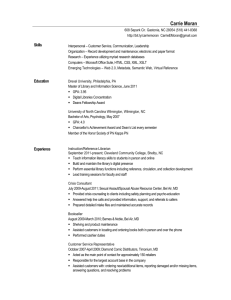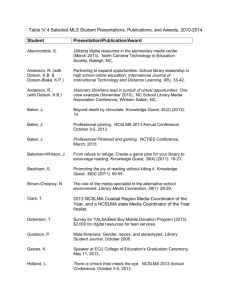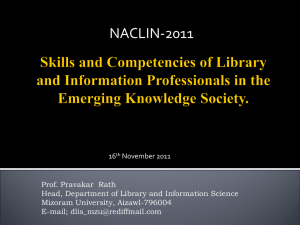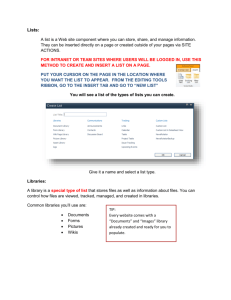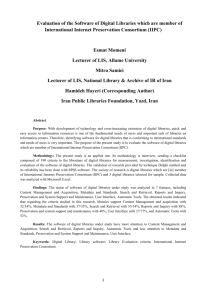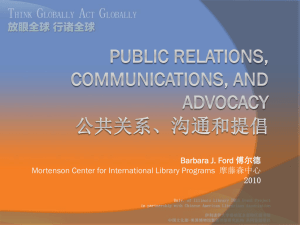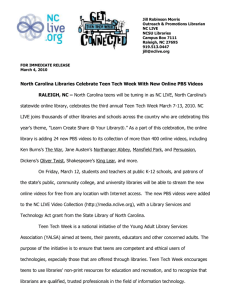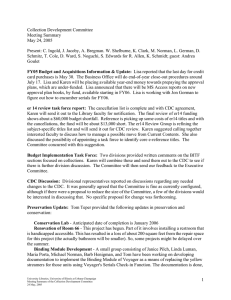ALCTS Big Heads Report Jan2014 UNC
advertisement
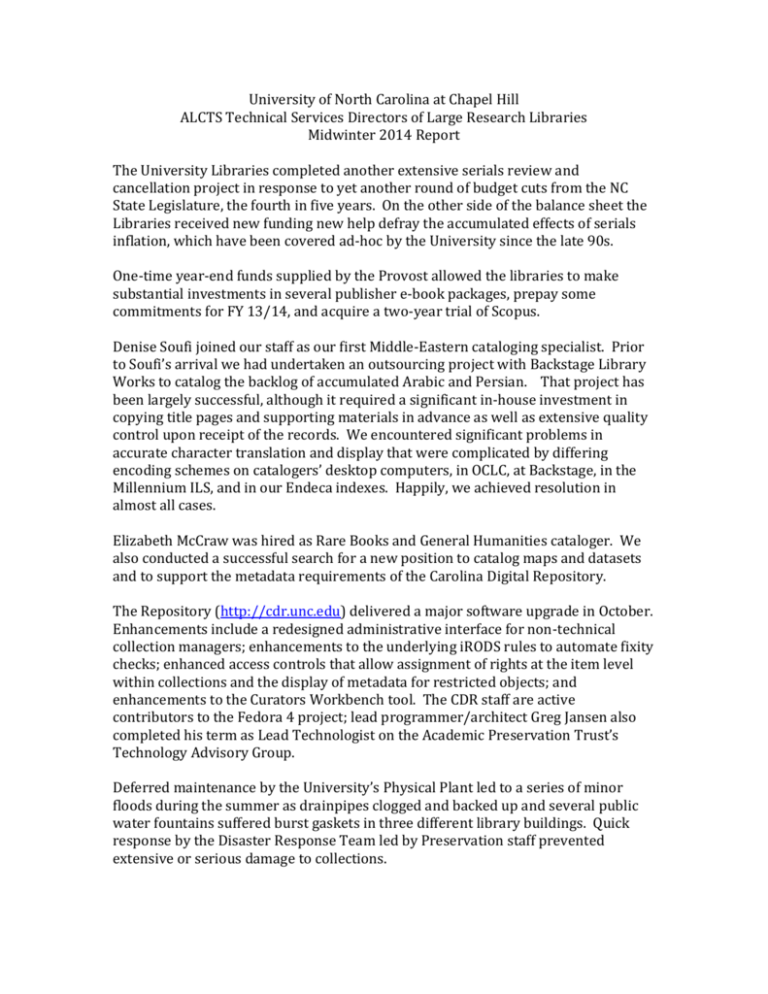
University of North Carolina at Chapel Hill ALCTS Technical Services Directors of Large Research Libraries Midwinter 2014 Report The University Libraries completed another extensive serials review and cancellation project in response to yet another round of budget cuts from the NC State Legislature, the fourth in five years. On the other side of the balance sheet the Libraries received new funding new help defray the accumulated effects of serials inflation, which have been covered ad-hoc by the University since the late 90s. One-time year-end funds supplied by the Provost allowed the libraries to make substantial investments in several publisher e-book packages, prepay some commitments for FY 13/14, and acquire a two-year trial of Scopus. Denise Soufi joined our staff as our first Middle-Eastern cataloging specialist. Prior to Soufi’s arrival we had undertaken an outsourcing project with Backstage Library Works to catalog the backlog of accumulated Arabic and Persian. That project has been largely successful, although it required a significant in-house investment in copying title pages and supporting materials in advance as well as extensive quality control upon receipt of the records. We encountered significant problems in accurate character translation and display that were complicated by differing encoding schemes on catalogers’ desktop computers, in OCLC, at Backstage, in the Millennium ILS, and in our Endeca indexes. Happily, we achieved resolution in almost all cases. Elizabeth McCraw was hired as Rare Books and General Humanities cataloger. We also conducted a successful search for a new position to catalog maps and datasets and to support the metadata requirements of the Carolina Digital Repository. The Repository (http://cdr.unc.edu) delivered a major software upgrade in October. Enhancements include a redesigned administrative interface for non-technical collection managers; enhancements to the underlying iRODS rules to automate fixity checks; enhanced access controls that allow assignment of rights at the item level within collections and the display of metadata for restricted objects; and enhancements to the Curators Workbench tool. The CDR staff are active contributors to the Fedora 4 project; lead programmer/architect Greg Jansen also completed his term as Lead Technologist on the Academic Preservation Trust’s Technology Advisory Group. Deferred maintenance by the University’s Physical Plant led to a series of minor floods during the summer as drainpipes clogged and backed up and several public water fountains suffered burst gaskets in three different library buildings. Quick response by the Disaster Response Team led by Preservation staff prevented extensive or serious damage to collections. Following Jenn Riley’s departure in October, the Library decided to re-organize the functions formerly administered by the Carolina Digital Library and Archives. The Digital Production Center, our in-house, high-demand digitization center, now reports to the Preservation Department; staff supporting digital scholarship and digital library projects are now part of Library & Information Technology. No programs and services have been discontinued. The Libraries are planning the opening of a Research Hub that will have centers in the main Library, the Health Sciences Library, and the Kenan Science Library. Partnerships are being pursued with external departments, including the Odum Institute for Research in the Social Sciences, the Center for Faculty Excellence, and central university Information Technology Services to support digital scholarship, GIS, data visualization, and data services. Will Owen AUL for Technical Services and Systems University of North Carolina at Chapel Hill
